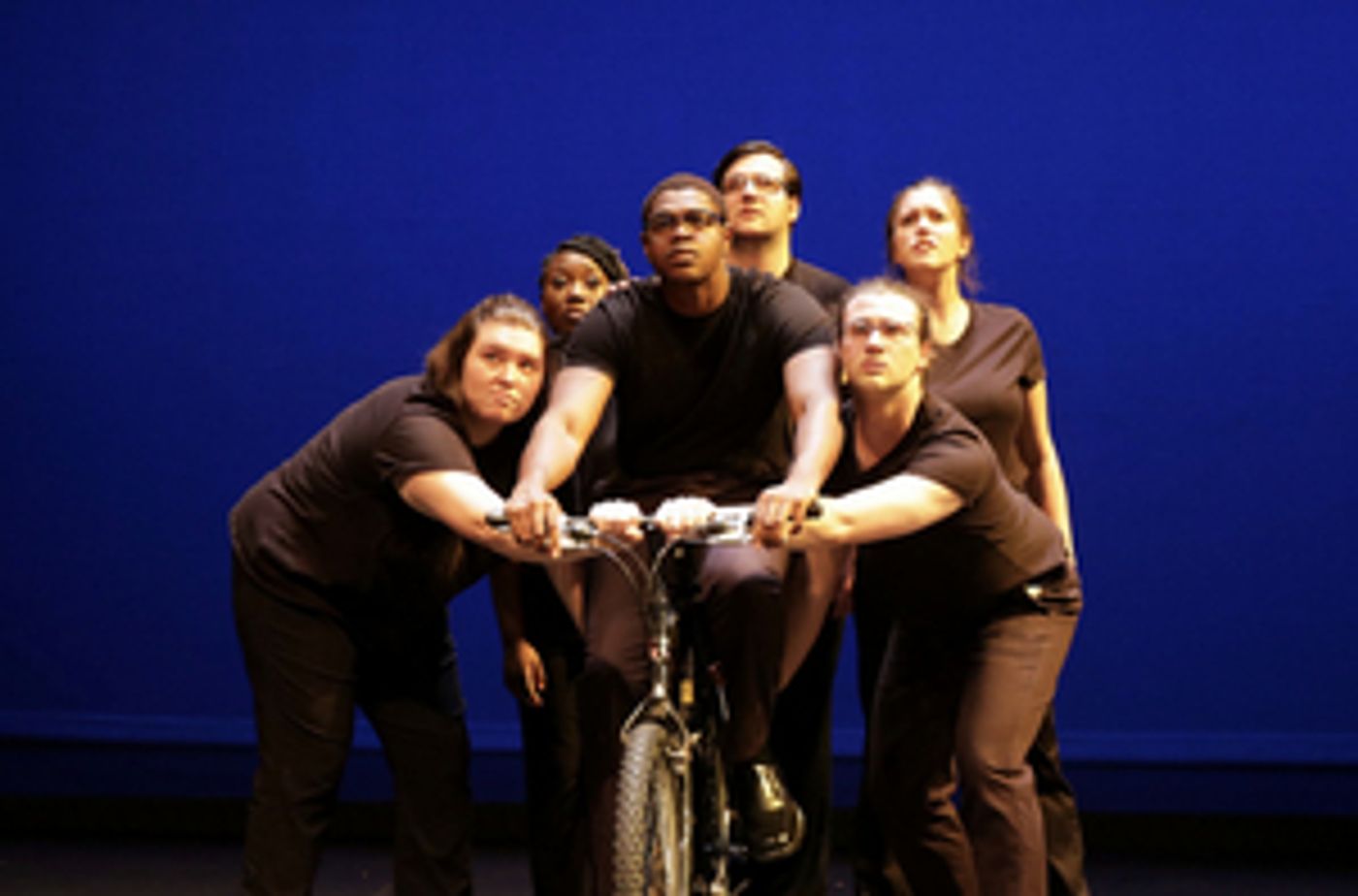Student Blog: The Problem of Recent History
Performing 9/11 When You Don’t Remember It

Allegheny College Playshop Theatre
Tom Flynn's Bikeman is deceptively complex. At face value, it's an epic poem about one of the greatest tragedies of our time-the events of September 11, 2001. There is no set, no ornate costuming, and a single prop. Fairly straightforward, no? A quick and easy production with maximum impact for minimal cost.
After watching Allegheny's cast of six work their way through staging a production in three weeks, I have to disagree.
In many ways, bringing a poem to life with nothing but your voice, body, and creative use of lighting is one of the hardest tests an actor or technician must pass. Any mistakes will stick out like a sore thumb-they cannot hide behind scene breaks or dance numbers. In the bare vulnerability of this stage, everything serves the words. Much like performing Shakespeare, this text is difficult and cannot be adjusted. It's a poem, and even a single word of improvisation during a frozen moment onstage has dire consequences for the rhythm and meter of the entire piece.
Even more complex, however, is the fact that none of the performers in this production remember the actual event they are referencing. Only half of them were even alive on September 11, 2001. None of the college-aged audience will have any memory of the event, either.
As for me, I was barely two months old on that day. I know the story-that my baptism was a few days afterward; that my family couldn't get a plane home and had to drive from Chicago to Pennsylvania; that my grandparents watched the television in horror as they babysat me. Growing up, adults showed me videos of the planes crashing into the towers and photos of the aftermath in an attempt to keep the memory alive-a universal experience of my cusp generation. Bottom line: I, like my peers, understand the earth-shattering impact of that day in American history. But, no matter how many clips we watch or books we read, we will never have lived it-the same distant way that our society understands the horrors of Gettysburg or Valley Forge (and perhaps feel strong emotions about them) but can never truly understand.
This sharp contrast in perspective between the performers/audience and those behind the scenes-the professors and technicians who remember 9/11 well-has kidnapped my attention. I find it fascinating and meaningful in a layered way that I'm not entirely sure I'll ever understand. Is it the human reflex to preserve the past? The primal antiquarian sensibility that this is important and this must be remembered? Or is it the slippery business of trying to bottle up emotion and unleash it upon the masses? When it comes down to it, isn't our dash to capture a day, an hour, a life-one of the infinite moments in human history-all emotion?
Bikeman may be a poem, staged simply, but it carries the massive weight of layer upon layer of meaning. That's my favorite kind of show-one you have to see over and over again to fully understand. It's loaded with the stories and experiences of both those who survived and those who didn't. It bears the expectations of the audience members and creatives who remember the day and the assumptions of those who don't. This is the power that theatre holds-the power of remembrance.
Videos


